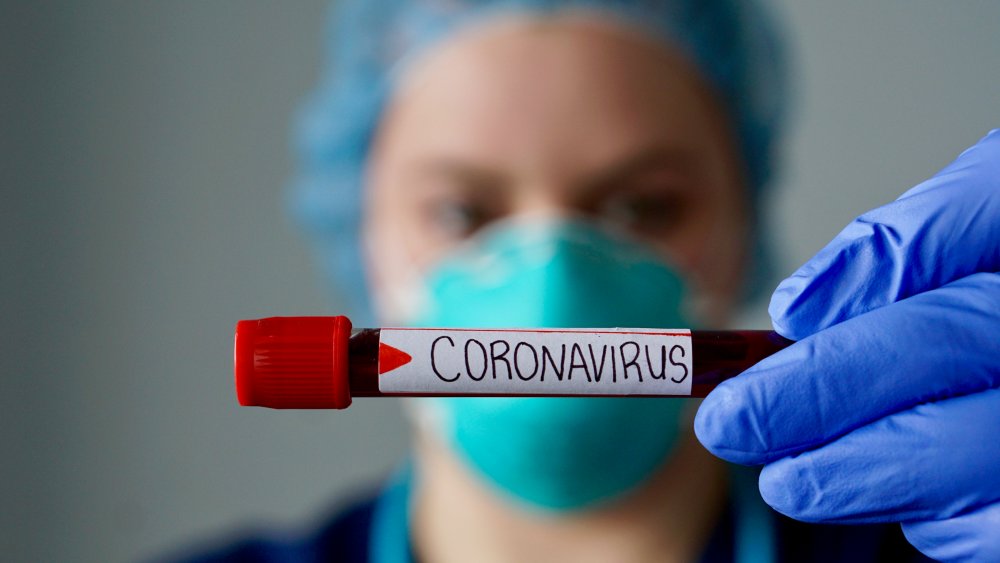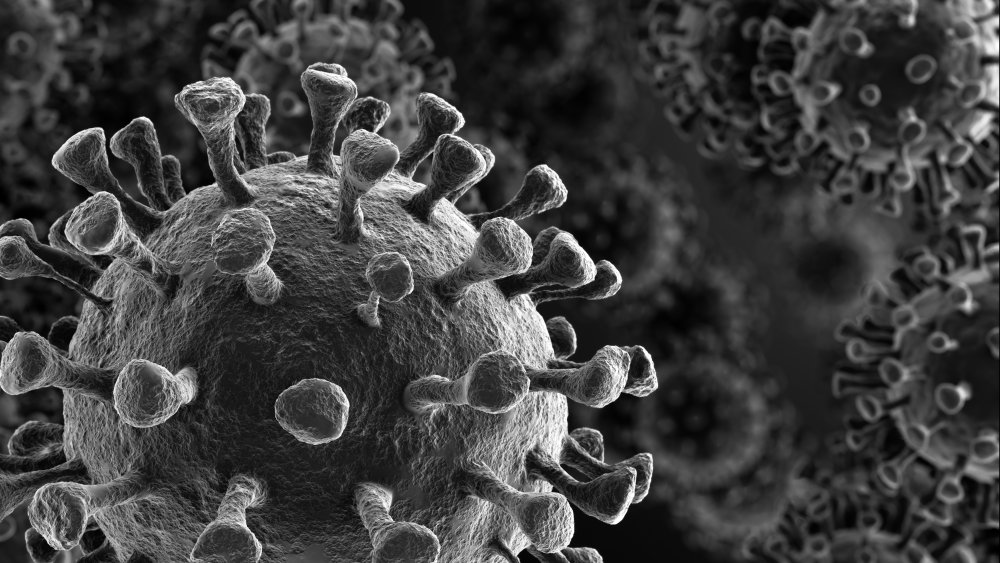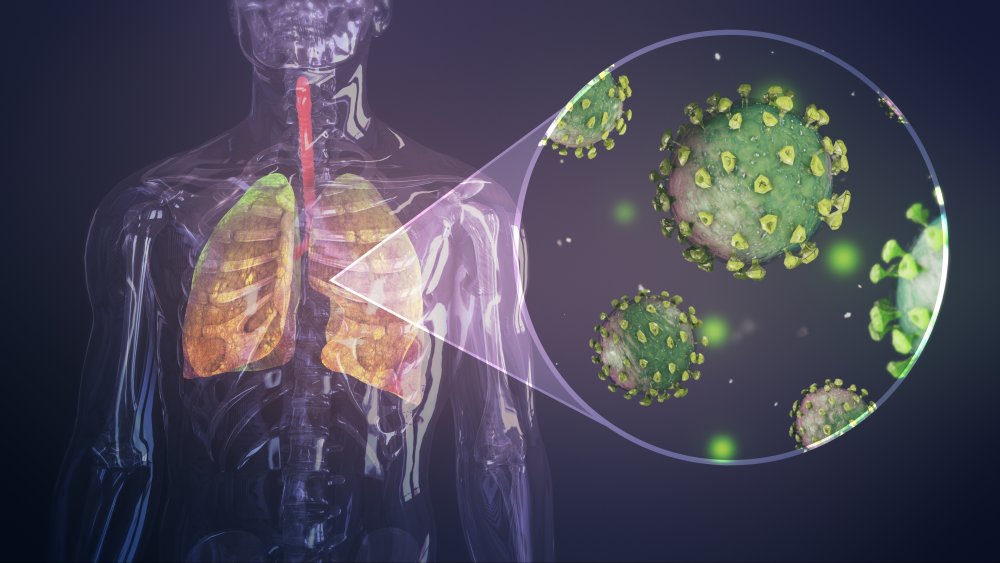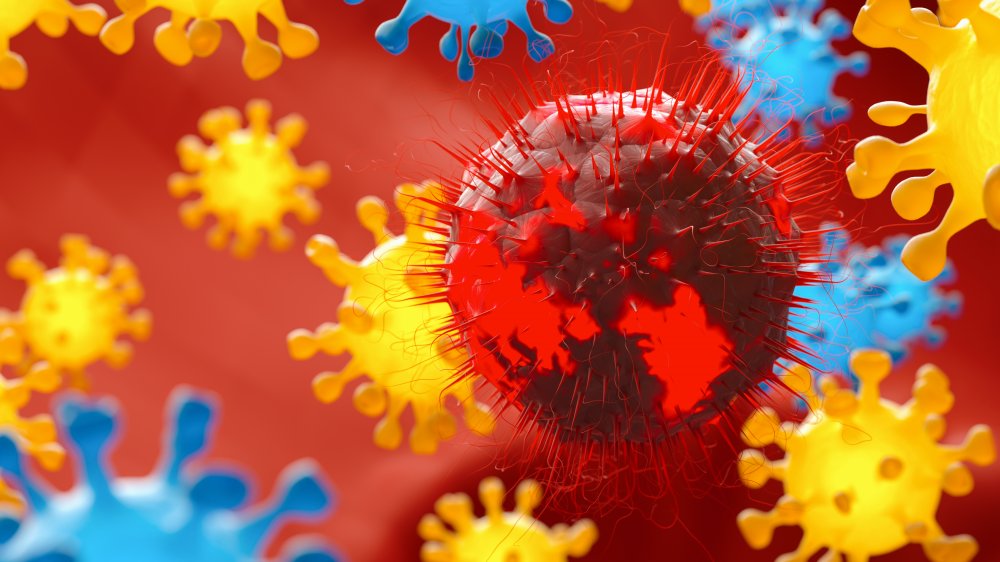Are You Immune To The Coronavirus After Getting It Once?
Day after day it's coronavirus, coronavirus, coronavirus. We're washing our hands like crazy, cleaning our houses more than ever before, we're even making our own hand sanitizer since there's no more to be had on store shelves. We're also practicing social distancing as best we can — helped in part by the fact that just about everything seems to be canceled, and now they're even closing down the bars and restaurants. Sports are all on hold, too — no March Madness, no NBA, no Opening Day. All that's left to do is binge on Netflix, and now they tell us that any new shows may delayed, too.
What if, though, after all of our precautions, we do happen to come down with coronavirus? Well, it's not an automatic death sentence. In fact, anyone who's in reasonable health stands a good chance of recovering. But what happens then? Once you do recover from coronavirus, does that mean you can now go out and do whatever you like — even touch your face! — without having to worry, since you'll be immune to the disease? Sadly, no. Unlike chickenpox, a disease that is said to convey a natural immunity after the first time you get it (although even this isn't necessarily true, according to the UK's National Health Service), coronavirus is a disease you can be reinfected with.
People who have come down with coronavirus more than once
Business Insider reports that a tour guide in Japan was the first confirmed case of coronavirus reinfection. She became ill in January, spent some time in the hospital, and then apparently recovered. Three weeks later, she was back in the hospital with another coronavirus flareup. An isolated incident? It doesn't seem to be. The Los Angeles Times speaks of over 100 known cases in China where coronavirus patients, apparently recovered, then fell ill again. While these reported incidents account for less than 0.2 percent of total Chinese coronavirus cases, the numbers might actually be higher, with a report from China's Guangdong province showing some 14 percent of coronavirus patients becoming reinfected after recovery.
Official data from China's National Health Commission, released in late February, stated that of 80,991 confirmed COVID-19 patients at the time, 3,179 had died while 64,216 had recovered, but there was no specific numbers pertaining to patients said to be recovered but who had subsequently been readmitted to hospitals. There are, however, reports of reinfected coronavirus patients in Chongqing and Tianjin, and in the provinces of Hainan, Hubei, Jiangsu, and Sichuan as well as Guangdong. Outside of Japan and China, at least one case of coronavirus reinfection has also been reported in Korea, though that patient did ultimately retest negative.
The immune response to coronavirus is not yet fully understood
We're still in early days with COVID-19, as far as medical research goes, so science does not, as yet, know everything about this disease. It is thought that many coronavirus sufferers do, in fact, develop a certain protective immunity against reinfection after their first case of coronavirus, but it is not known how long this immunity may last. Dr.
Peter Jung, assistant professor of pediatrics at the University of Texas Medical School at Houston, told HuffPost that patients, particularly younger ones, may "likely develop at least short-term immunity to the specific coronavirus that causes COVID-19," but he notes that "just as the flu can mutate, so could COVID-19, which would make an individual susceptible to reacquiring the infection."
Dr. Stephen Gluckman explained, "Coronaviruses aren't new, they've been around for a long, long time and many species — not just humans — get them. So we know a fair amount about coronaviruses in general. For the most part, the feeling is once you've had a specific coronavirus, you are immune. We don't have enough data to say that with this coronavirus, but it is likely." Even the Centers for Disease Control and Prevention admit that "immune response to COVID-19 is not yet understood" at this time.
Coronavirus may be deadlier the second time around
According to Chinese doctors, the danger may lie in the fact that a second COVID-19 infection can prove far more serious than the initial disease. A message that was forwarded to Taiwan News by a physician who wished to remain anonymous read: "It's highly possible to get infected a second time. A few people recovered from [coronavirus] the first time by their own immune system, but the meds they use are damaging their heart tissue, and when they get it the second time, the antibody doesn't help but makes it worse, and they die a sudden death from heart failure."
Now that's some scary stuff, but remember, as Dr. Gluckman said, it is thought that the body will become immune to a coronavirus after the first infection. Practicing social distance, washing your hands thoroughly, and not touching your face are still said to be your best bet at avoiding COVID-19 altogether. In the words of Sergeant Phil Esterhaus from Hill Street Blues, "Let's be careful out there!"



